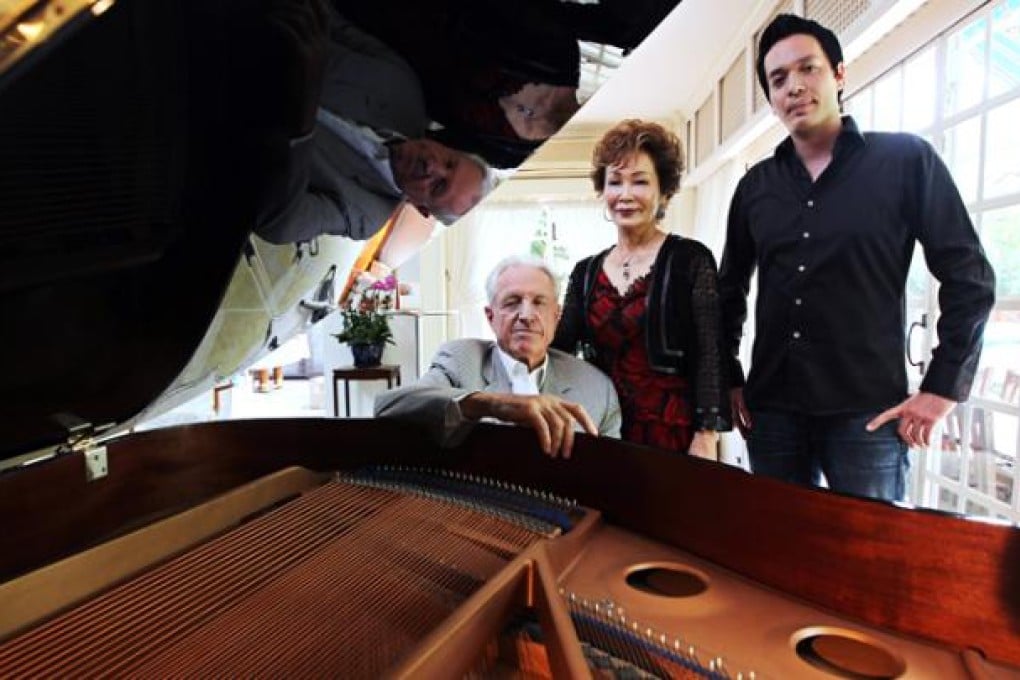The house that Klaus built
As Hong Kong classical music label Naxos celebrates its 25th anniversary, Sam Olluver meets the man who turned a tiny start-up into a global powerhouse of innovation. Portrait by Nora Tam

As the world's leading classical record label, Naxos is arguably Hong Kong's best kept secret. Music lovers are always surprised to learn that this household name, based in Cyberport, was conceived and developed in our very own city, a pin-prick on the international music scene and more famed for a love of money than devotion to Mozart. Having notched up 25 years of making classical music accessible to the masses, however, the company can look back with considerable satisfaction on its David-and-Goliath success story - one shot through with staggering statistics, the occasional prophetic moment and even a touch of the miraculous.
Exercising his grip on both the central core and the innovative edge of the Naxos empire throughout that quarter of a century has been Klaus Heymann: 76 years young [sic], dapper, sporty and one of the most courteous subjects one might hope to interview. He's also someone whose laser-beam eye for detail you would never want to underestimate, as one British writer found to his cost following litigation over a false statement he published in a book. ("A very careless journalist; he doesn't take notes.")
Heymann doesn't play an instrument, nor can he read music, which suggests the opposites-attract principle was at play when he fell in love with renowned Japanese violinist Takako Nishizaki, on August 13, 1974. ("That's the day we celebrate, not our wedding.") His wife of 37 years has no executive position within the company but whispers in his ear from time to time on artistic matters. In the early days of Naxos, when Heymann was on the hunt for good, cost-effective musicians who were prepared to take a leap of faith with his new, budget-label recordings, Nishizaki was often signed up. ("She was my wife; she had no choice.") Now one of the most frequently recorded and best-selling violinists ever, her renown as a soloist is complemented by her reputation as a teacher, strengthening the bond with her husband in his crusade to maintain education as a core element of the Naxos business model. ("If we want to grow, we have to educate our market.")
in 1936, Heymann studied English and the Romance languages, first at his local university, then in Lisbon, Portugal, at King's College, London, and at the Sorbonne in Paris. Eventually dropping out of academia, he did stints in advertising and journalism, the latter bringing him, in 1967, to Hong Kong, where he was dispatched to set up an office for The Overseas Weekly, a tabloid serving the American armed forces stationed in the region during the Vietnam war. It didn't take long, however, for the entrepreneurial bug to bite, encouraged by the city's light-touch administration of new businesses.
"You buy your registration, put it on the wall and they leave you in peace … a wonderful incentive; I would never have thought of opening my own business in Germany," he recalls.
Earnings from a string of successful enterprises over the next two decades provided the financial float to get his flagship music business up and running in 1987. Its name was selected from a stack of shell companies named after Greek islands. ("Rhodes, no; Crete, no; Lesbos, obviously no; Naxos - oh, [Richard Strauss' opera] Ariadne auf Naxos; it's easily pronounced in every language and has classical connotations.")
Twenty-five years on, the neatest way to describe the reputation Naxos has achieved would be with the adjectives "encyclopaedic" and "affordable". The comprehensiveness for which the company is famed is illustrated by the fact that the digital Naxos music library gives subscribers access to more than a million tracks online, with the number growing daily. Affordability, however, was there from the start.